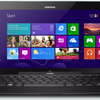
The new Amazon Kindle Fire will use Amazon's very own completely new Web browser called Silk that leverages Amazon's EC2 architecture to proxy and cache web content for faster performance. You might think of it as something similar to Opera Mini, a former favorite mobile browser of mine, which does something similar. What I liked about Opera Mini on my old Windows Mobile phone was that it compressed images and made pages load faster on slower connections. But as 3G speeds became more prevalent, the need for Opera Mini diminished. So I was initially a bit surprised Amazon was going down this route, but then I thought about it some more and it's actually brilliant.
First, let's look at how it works. When a user requests a webpage in Silk, the request goes to Amazon's servers in the cloud. Amazon will load the webpage on their servers and download all of the page contents in parallel. After grabbing the content, Amazon will send a compiled and compressed page back to the Silk browser that includes HTML, JavaSript, CSS, and images all over a single stream.
Amazon has huge amounts of bandwidth that they can leverage to retrieve page contents faster than the end user's device. Further, since they can cache that content, they can serve it up even faster. Amazon even plans to learn which pages users are likely to load and pre-cache content so it's more readily available. Because Amazon acts as a proxy it can know everything you do, which is a power that not even Google or Facebook has. Everything you do on the web, from loading a website, to clicking a link, to filling out a form can be captured by Amazon's proxy servers. While they can use this for "good" by caching content to speed performance, they can also use this for "bad" by sending targeted political ads your way if you visit say the Drudge Report, a conservative political news site. You can see where there is going.
I've already stated my reservations about the Kindle Fire, so the privacy concerns adds even more. Perhaps I'm being paranoid, since I did use Opera Mini which proxied my web surfing habits.
Ironically, Google is the one getting shafted here. They built Android with the idea of users using Google search and seeing Google ads for them to build revenue. Amazon's Silk browser mitigates this revenue stream. This is perhaps the first salvo fired by Amazon to take on Google in the mobile space. We may just have an Apple, Amazon, Microsoft, Google mobile fight on our hands.
If so I welcome it for the innovation that competition will bring. Still not crazy about the Kindle Fire not having a microphone (no VoIP), no camera, and no 3G, but it might carve out a nice niche due to the low $199 price-tag. And they could be following Apple's model of releasing a new model every 18 months or so to get people to upgrade to the latest iPhone or iPad. So perhaps Amazon purposely handicapped the features of the Kindle Fire so they can slowly add them into future models.













